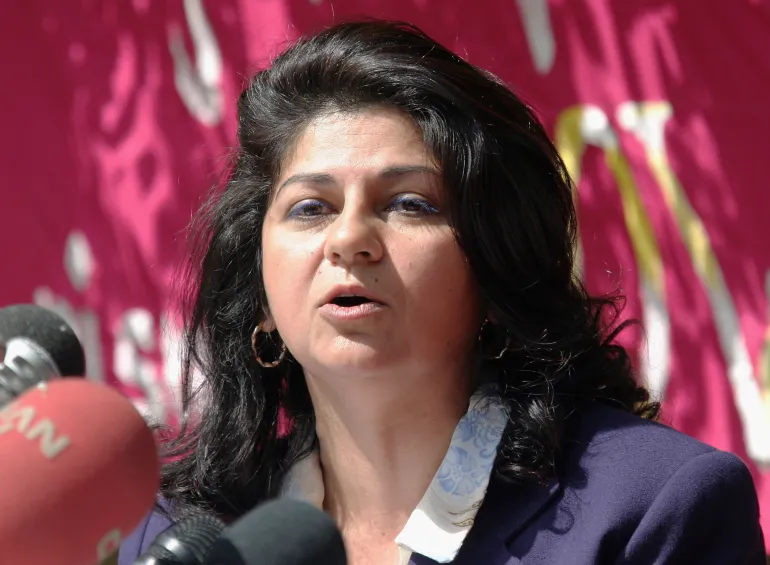Iraqi women’s rights activist Yanar Mohammed killing spurs call for justice | Women’s Rights News
The killing of prominent Iraqi women’s rights activist Yanar Mohammed has fuelled an outpouring of grief and calls for justice, with advocates from around the world remembering Mohammed as a “courageous” voice.
Mohammed, 66, was killed earlier this week after unidentified gunmen on a motorcycle opened fire outside her home in the north of Iraq’s capital, Baghdad.
Recommended Stories
list of 3 itemsend of list
“Despite being rushed to the hospital and attempts to save her life, she succumbed to her wounds,” the Organisation of Women’s Freedom in Iraq, a group that Mohammed co-founded, said in a statement shared on social media.
“We at the Organisation for Women’s Freedom in Iraq condemn in the strongest terms this cowardly terrorist crime, which we consider a direct attack on the feminist struggle and the values of freedom and equality.”
Several international rights groups also condemned Mohammed’s killing, with Amnesty International on Wednesday decrying the deadly attack as “brutal” and “a calculated assault to stifle human rights defenders, especially those defending women’s rights”.
The organisation, which said Iraq’s Prime Minister Mohammed Shia al‑Sudani ordered an investigation into the killing, also called on the Iraqi authorities to ensure the perpetrators are brought to justice.

“Yanar Mohammed … dedicated her life to defending women’s rights,” Amnesty’s Iraq researcher, Razaw Salihy, said in a statement. “The Iraqi authorities must stop this pattern of targeted attacks in their tracks, and take seriously the sustained smear campaigns designed to discredit and endanger activists.”
Mohammed was one of Iraq’s most prominent women’s rights activists, working since the early 2000s “to protect women facing gender-based violence, including domestic abuse, trafficking, and so-called ‘honour killings’”, Front Line Defenders said.
Her work included the establishment of safe houses, which sheltered hundreds of women experiencing exploitation and abuse.
In a 2022 interview with Al Jazeera, Mohammed described her organisation’s efforts to support Iraqi women who survived violence at the hands of ISIS (ISIL), which had seized control of large swathes of the country.
“Muslim-Arab women who were enslaved by ISIL and have not found a place to go back to, they are still living in the shadows of the society,” she said at the time.
“Not less than 10,000 women were the victims of ISIL attack[s], and this femicide is not really acknowledged by the international community or dealt with in a way that keeps the dignity or the respect [of], or compensates, those who were the victims.”
Years of threats
Mohammed had been the target of death threats for decades, “aimed at dissuading her from defending women’s rights”, Front Line Defenders said. “Yet she remained defiant in the face of threats from ISIS and other armed groups.”
In 2016, she was awarded the Rafto Prize “for her tireless work for women’s rights in Iraq under extremely challenging conditions”.
The Rafto Foundation, the Norway-based nonprofit group that administers the award, said it was “deeply shaken” by her killing. “We are deeply shocked by this brutal attack on one of the most courageous human rights defenders of our time,” the foundation said in a statement.
“The assassination represents not only an attack on Yanar Mohammed as a person, but also on the fundamental values she dedicated her life to defending: women’s freedom, democracy, and universal human rights.”
Other activists and human rights groups also paid tribute to Mohammed this week, with Human Rights Watch describing her as “one of Iraq’s most courageous advocates for women’s rights” for more than two decades.
“Yanar was a dear colleague and friend to so many of us in the women’s rights and feminist community, one of our icons. She spent her life standing up for women’s rights in the most dangerous environment,” said Agnes Callamard, secretary-general of Amnesty International.
“She faced constant threats, but she never stopped. And today we cry and mourn her energy, her commitment, her profound humanity, her amazing courage.”

